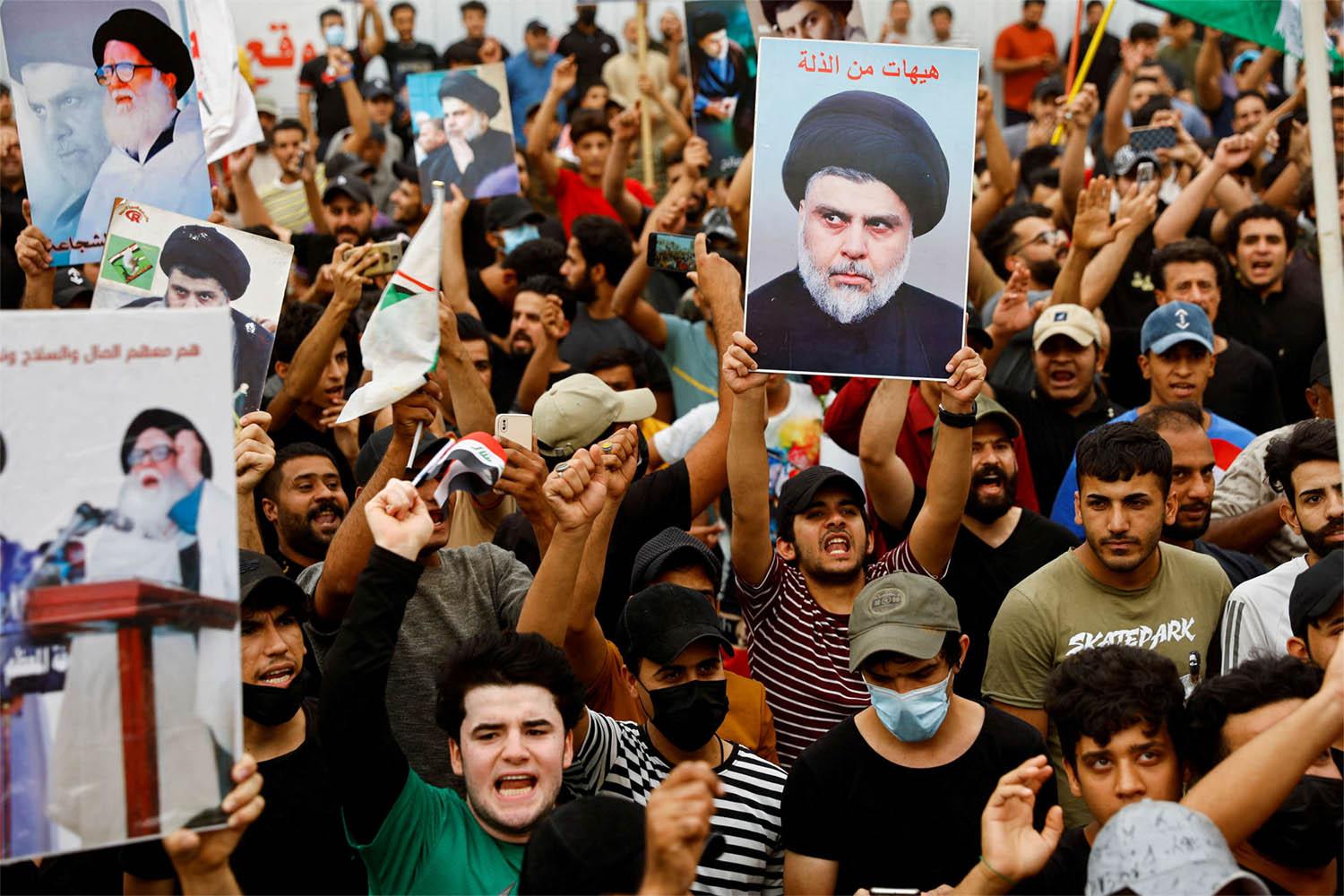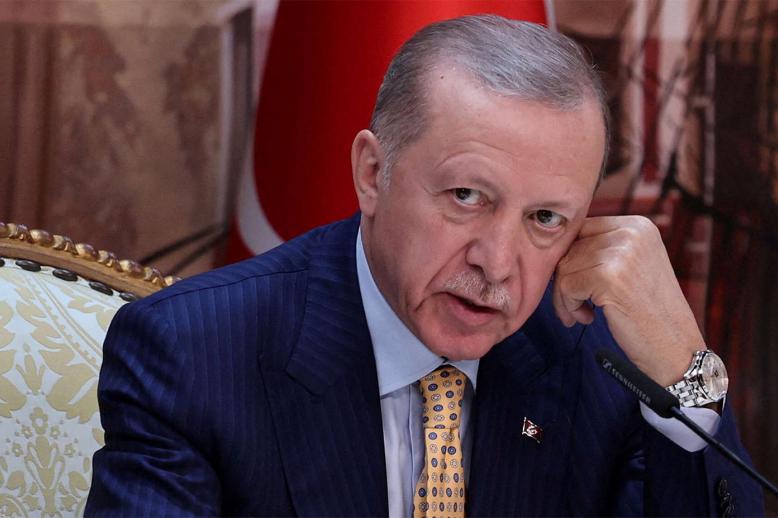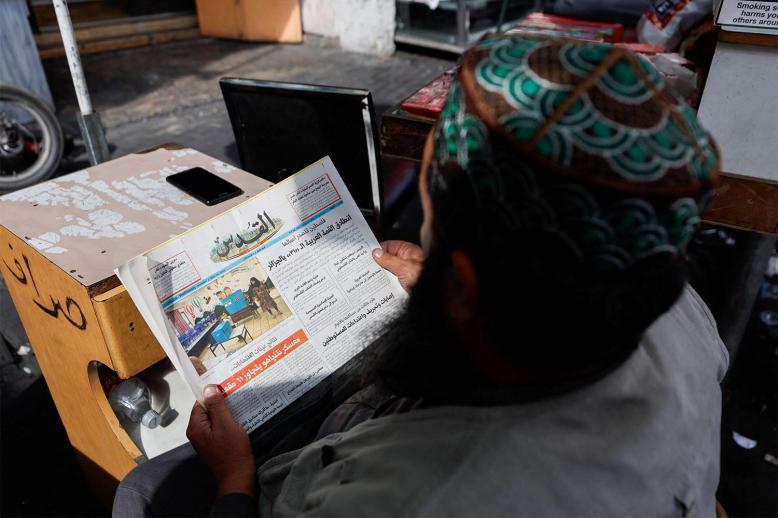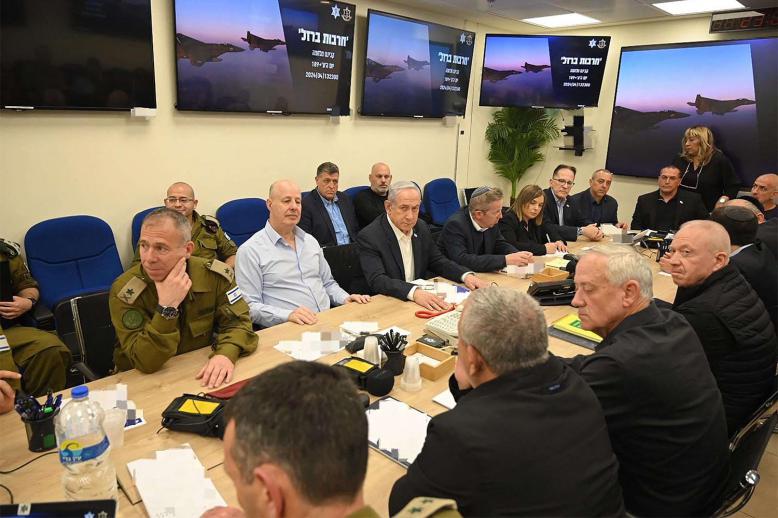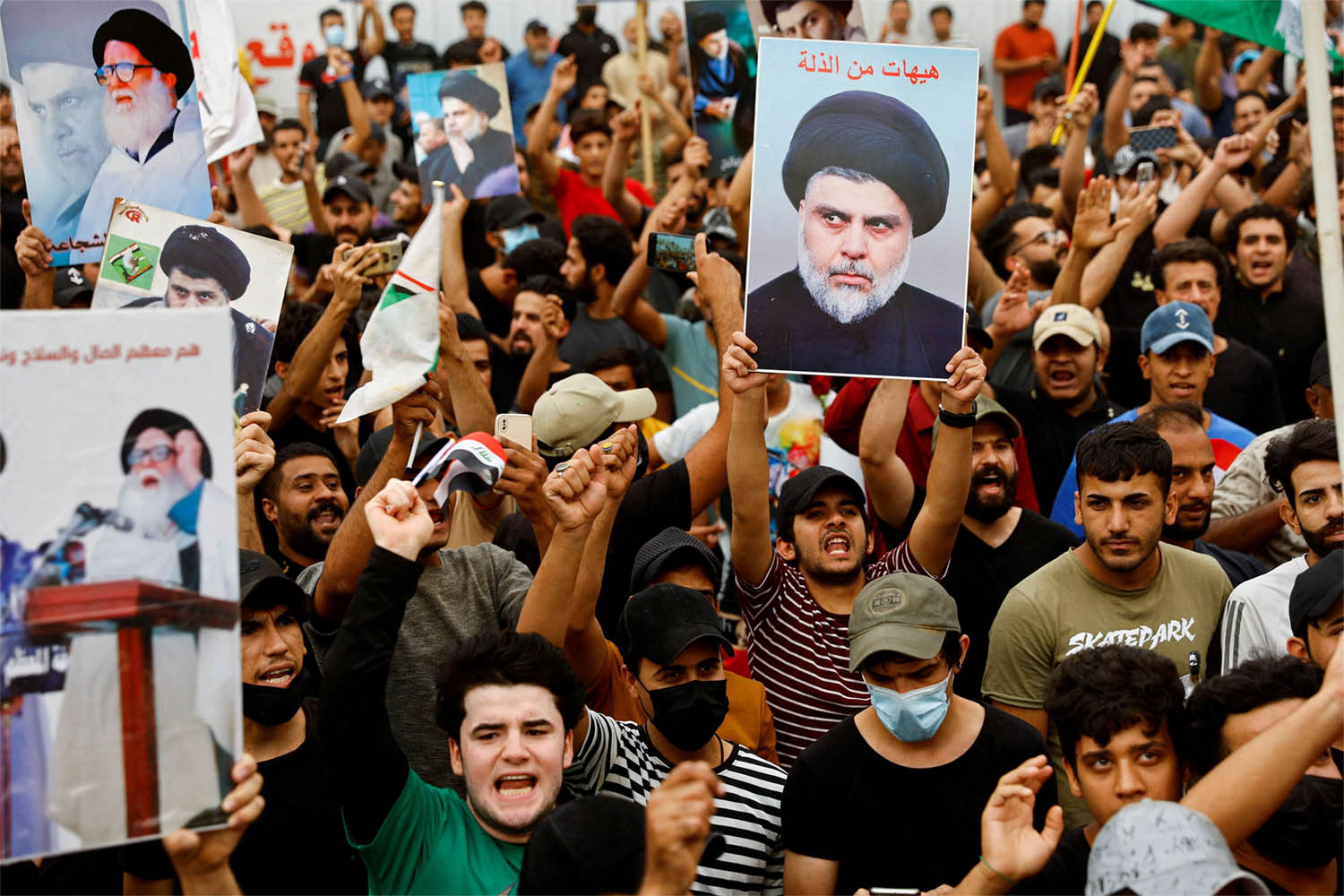Chronic Arab political gridlock
Although the group was the largest bloc in last October’s elections, it was unable to form a government because of opposition from its rivals in the Coordination Framework, which includes the other Shiite forces that refuse to form a majority parliamentary government with their allies, the Kurdistan Democratic Party (KDP) and the Sunni Alliance for Sovereignty.
Far from discussing the reasons for Moqtada Al Sadr’s decision to recall members of his parliamentary bloc, the political stalemate intensifies. Future political scenarios seem open to all possibilities. The parliamentary map could change against the will of the electorate.
This undermines the legitimacy of any new parliamentary and governmental formation that could replace the Sadrist MPs leading the elections, which means continued anger on the Iraqi street. Some believe that the Sadrist Movement bloc’s withdrawal from parliament gives it additional leverage as it reasserts its influence on the Iraqi public.
There is an element of pressure on his rivals who have blocked his plans to form a coalition government. But there are no guarantees. If new elections are held or obstacles such as disagreements over the electoral law, etc., are overcome, they will bring the stability Iraq and its people need.
There are also voices that believe the withdrawal is a tactical manoeuvre to put pressure on rivals. But this scenario comes down to the vision of the rivals and their alternative plans for dealing with the political reality created by the resignation of the Sadrist MPs.
What all Iraqi forces and currents must keep in mind is that Iraq no longer tolerates such political differences, especially in the current international conditions; it is difficult to hold this great country hostage to internal conflicts, many of which reflect a dictate from the outside that aims only to maintain foreign influence and role, ignoring the will of the Iraqi people who have protested many times against political proxies and manipulators.
Whatever the goals behind the Sadrists’ resignation, it puts all of Iraq in a predicament. The crisis takes on a new dimension that is difficult to predict, especially since the Iraqi political spectrum does not agree with the need to distance the country from its Iranian neighbour, the main cause of what is happening.
It is unwise to protect foreign interests while sacrificing the fate of one’s own country. Iraq, whose people dream of a constitutional state, deserves for all to overcome their differences and agree on a minimum of common principles that will enable their country to avoid chaos and unrest.
This will not be achieved by presenting any party with a fait accompli, and attempting to circumvent the results of the elections by manoeuvring will only cause everyone to lose. The Iraqi problem is similar to the Lebanese dilemma in its results and identical to it in its causes. The Iranian factor is the common denominator.
The only difference is the division within the Shiite community. It is also not far from the influence of Tehran and its agents. The situation in Sudan, Libya, Yemen and elsewhere is not dissimilar to that in Iraq and Lebanon.
The fragmentation of political elites, external loyalties and personal interests play the main role in exacerbating political conflicts in these states. The problem of some Arab countries is not democracy and the ballot box. These mechanisms, long called for by many, have become part of the problem, not the solution.
This is not a call to reject or promote consultative processes, as some might conclude. But my point is that the crisis of these countries is deeper than the mechanisms that are supposed to create favourable conditions, and we see that hateful sectarianism prevents us going past the ballot boxes.
Transnational interests and loyalties prevent the formation of governments that reflect the will of society. We see that those who invoke the ballot do not accept its results. We are dealing with a state of deadlock that is the result of a one-sided culture that believes in democracy only when it serves its interests and goals, and turns against it when the results go against those interests.
It is often said that democracy needs democrats - ones who believe in sovereignty and recognize the value of their homeland and the need to protect it from any outside interference. Civilized political practice involves not just slates of candidates and ballot boxes, but genuine convictions rooted in the right of citizens to choose who will represent them.
In the complete absence of these convictions, the scene appears absurd, whether it is the eight months in which election officials failed to form a government in Iraq, the usurpation of power by militias in Sanaa, the dissonance of two governments competing for power in Tripoli and Benghazi, or the Lebanese scene pulsing with all colours of the spectrum of political inanity.
Salem AlKetbi is a UAE political analyst and former Federal National Council candidate

